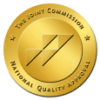Understanding how a health insurance plan covers detox in Tennessee is crucial for anyone seeking addiction treatment. Not all insurance plans provide the same level of coverage, and out-of-pocket costs can vary greatly depending on the type of plan you have. If you or a loved one is struggling with addiction, you might wonder “Will My Health Insurance Plan Cover Detox?”
In this article, we’ll explore the major forms of health insurance and explain which ones mandate substance abuse coverage. By the end, you’ll also know what to do if your insurance doesn’t cover detox or if you’re uninsured. At Tennessee Detox Center, we offer addiction treatment in Tennessee with the goal of helping our clients get the care they need without stressing about finances.
What This Article Will Teach You
Mental health & substance abuse coverage can be confusing, especially when it comes to detox and addiction treatment. By the time you finish this article, you’ll understand:
The major types of health insurance available in the U.S.
Which categories of insurance are required to cover substance abuse treatment
What options exist if your health insurance plan covers Detox in Tennessee or if you’re uninsured
Understanding how a health insurance plan covers detox in Tennessee is crucial for those seeking addiction treatment. Not all plans provide the same coverage, and costs vary widely depending on the type of insurance. This article will guide you through the most common forms of health insurance, the categories that cover substance abuse treatment, and what options are available if your insurance doesn’t cover detox or if you’re uninsured.
Understanding HMO vs PPO Insurance for Detox
No matter what type of insurance plan you have, whether it is through your employer or a government program, there are generally two main types of health insurance plans: HMO (Health Maintenance Organization) and PPO (Preferred Provider Organization).
HMO plans typically have lower out-of-pocket costs and require patients to choose a primary care physician who will oversee their healthcare. This means that to receive coverage for any medical treatment, including addiction treatment, the patient must first obtain a referral from their primary care physician.
PPO plans offer more flexibility in choosing healthcare providers but usually come with higher out-of-pocket costs. Patients with PPO plans do not need referrals and can visit specialists without obtaining prior approval.
If you’re wondering, “Will my health insurance plan cover detox,” the answer is most likely yes. But, this might also heavily rely on whether you have an HMO or PPO plan.
Major Types of Health Insurance
In the U.S., the most popular forms of health insurance include employer-provided plans, Obamacare (Affordable Care Act), Medicare, Medicaid, and TRICARE. While other forms like short-term plans exist, we’ll focus on these key categories, as they are most relevant to addiction treatment coverage. If your health insurance plan covers detox in Tennessee you’ll want to ensure you understand its limits and benefits. For those without insurance, payment plans and other options may still be available.
Employer Health Insurance
Employer-provided health insurance comes in different types. Common commercial employer-offered insurance companies that might provide mental health & substance abuse coverage include:
These insurance companies typically offer a range of plans that cover different levels of substance abuse treatment, including inpatient and outpatient services. It’s important to carefully review the details of each plan to determine the extent of coverage for addiction treatment.
How a Health Insurance Plan Covers Detox
If you’re wondering How a Health Insurance Plan Covers Detox for businesses, small companies (those with 50 or fewer workers) typically offer small group health insurance, which must comply with the Affordable Care Act (ACA). This means small group plans usually cover substance use treatment. Your coverage, however, depends on the plan’s network type (like an HMO or PPO). For instance, PPO plans may offer the flexibility to use out-of-network detox centers, which can be helpful if the in-network options don’t suit your needs.
Large companies and self-insured businesses follow ERISA regulations, which are less strict than ACA plans. While these large employer plans often offer broad benefits, including substance abuse treatment, ERISA guidelines allow more flexibility. If substance use treatment is included, the plan must comply with the Mental Health Parity and Addiction Equity Act (MHPAEA). This law ensures that coverage for substance abuse treatment is similar to other medical benefits. In other words, cost-sharing requirements for addiction treatment, such as deductibles or copayments, can’t be higher than those applied to medical care.
Obamacare (ACA Plans)
Obamacare refers to health insurance plans that comply with the Affordable Care Act (ACA). These plans offer 10 Essential Health Benefits, including coverage for substance use disorders. However, some ACA plans are narrow network HMOs, meaning your choice of detox facilities may be limited. If you have a PPO plan under Obamacare, you’ll have more flexibility to use out-of-network detox centers.
Medicare
Medicare primarily covers individuals aged 65 and older, but it also includes people with disabilities. Medicare benefits do cover detox, including drug and alcohol detox, when deemed medically necessary. Medicare Advantage plans (Part C) often expand these benefits, allowing you to explore supplemental options like additional mental health or substance use coverage. However, some detox centers may not accept Medicare due to lower reimbursement rates, so it’s important to confirm with your chosen facility.
Medicaid
Medicaid is a government-sponsored program for low-income individuals, children, and other qualifying groups. It generally covers substance abuse treatment, including detox. However, challenges may arise if you need to determine whether detox is medically necessary or if the detox facility accepts Medicaid reimbursement, as Medicaid payment rates can be lower than other forms of insurance.
TRICARE
TRICARE provides health insurance for U.S. military personnel and their families. Like Medicare and Medicaid, TRICARE covers detox for substance use disorders. However, it’s essential to confirm which facilities accept TRICARE for detox in Tennessee, to ensure you can access the care you need.
TRICARE vs. VA Insurance
There’s a big difference between TRICARE and VA insurance. TRICARE is open to current members of the military and their families, whereas VA insurance is designed specifically for veterans. If you are seeking treatment for a substance use disorder in Tennessee, it’s essential to understand which type of insurance you have and what benefits it provides.
Your local VA medical center might have a substance abuse program with detox. But, if you want to explore other options, you might be able to get a referral for Community Care that includes treatment at in-network facilities or with community providers.
What to Do When You Lack Coverage for Detox
Even if your health insurance plan covers detox in Tennessee, it doesn’t always guarantee your preferred detox center will accept your insurance. In these cases, contact your insurer for alternative options. If you’re uninsured, many detox facilities offer payment plans or sliding scale fees.
Nonprofit organizations can also help connect people struggling with addiction to affordable treatment options. By knowing how your insurance works or exploring financial alternatives, you can ensure that cost won’t stand in the way of getting the treatment you or your loved one needs.
Explore Coverage Options Today at Tennessee Detox Center
Tennessee Detox Center is dedicated to providing affordable, effective treatment options for those struggling with addiction. Our team of trained professionals will work with you and your insurance provider to determine the best coverage options available. We understand that navigating insurance can be overwhelming, but we are here to guide you through the process and make sure you get the care you deserve. Call us today at (629) 262-5675 to speak to our caring consultants today.
FAQ: Health Insurance Coverage for Detox in Nashville
Yes — many health insurance plans cover medical detox when it’s deemed medically necessary. Coverage can vary by plan, but detox is often included as part of addiction treatment benefits.
Plans such as employer-sponsored group policies, Medicare, and many private health insurance plans may offer detox coverage. Each plan’s specifics — like deductible, coinsurance, and provider network — affect how much is covered.
Contact your insurance company directly and ask about substance use disorder benefits, detox coverage, in-network providers in Nashville, and any requirements like pre-authorization.
Have your insurance ID number, the name of the detox facility, and questions about inpatient vs outpatient detox, approval requirements, and coverage limits. This helps you get clear answers quickly.
Many policies cover a continuum of care, starting with detox and extending to residential treatment, outpatient therapy, and aftercare services. Coverage levels may vary for each service type.
You can appeal the decision by providing documentation from your doctor or treatment provider that explains why detox is medically necessary. Your provider may assist with the appeals process.
Yes — even with coverage, you may be responsible for things like deductibles, copays, or coinsurance. Confirm your plan’s cost-sharing details before beginning treatment.
Tennessee Department of Commerce and Insurance. (2021, May 18). Let’s talk about mental health and insurance. Tennessee.gov. https://www.tn.gov/commerce/blog/2021/5/18/let-s-talk-about-mental-health-and-insurance.html
Tennessee Department of Commerce and Insurance, Insurance Division. (2024). Mental health parity report pursuant to Tenn. Pub. Acts Ch. 244 and § 56‑7‑2360(e). Tennessee General Assembly. https://www.capitol.tn.gov/Archives/Senate/113GA/committees/Health-Welfare/2024/Mental%20Health%20Parity%20Report%20Final.pdf
Tennessee Code Annotated § 56‑7‑2360 (2024). Coverage for mental health, alcoholism, or drug dependency services. Justia. https://law.justia.com/codes/tennessee/2024/title-56/chapter-7/part-23/section-56-7-2360/
Tennessee Attorney General’s Office. (2013). Interpretation of federal parity law and state statutes. ParityTrack. https://www.paritytrack.org/reports/tennessee/regulations/
Tennessee Code Annotated § 56‑7‑2601 (2012). Mandated coverage of alcoholism and drug dependency services equivalent to physical illness. ParityTrack. https://www.paritytrack.org/reports/tennessee/statutes/
TennCare Division, Tennessee Department of Finance & Administration. (2019). Mental health parity under CMS rule for TennCare & CoverKids. Tennessee.gov. https://www.tn.gov/tenncare/policy-guidelines/mental-health-parity.html
U.S. Department of Labor. (2008). Paul Wellstone and Pete Domenici Mental Health Parity and Addiction Equity Act (MHPAEA). https://www.dol.gov/agencies/ebsa/laws-and-regulations/laws/mental-health-and-substance-use-disorder-parity
U.S. Congress. (2008). Mental Health Parity and Addiction Equity Act of 2008, Pub. L. 110-343, 42 U.S.C. § 300gg-26. https://www.congress.gov/bill/110th-congress/house-bill/6983/text

Medically Reviewed By:
Dr. Vahid Osman, M.D.
Board-Certified Psychiatrist and Addictionologist
Dr. Vahid Osman is a Board-Certified Psychiatrist and Addictionologist who has extensive experience in skillfully treating patients with mental illness, chemical dependency and developmental disorders. Dr. Osman has trained in Psychiatry in France and in Austin, Texas. Read more.

Clinically Reviewed By:
Josh Sprung, L.C.S.W.
Board Certified Clinical Social Worker
Joshua Sprung serves as a Clinical Reviewer at Tennessee Detox Center, bringing a wealth of expertise to ensure exceptional patient care. Read More
The Joint Commission – The Gold Seal of Approval® signifies that Tennessee Detox Center meets or exceeds rigorous performance standards in patient care, safety, and quality. It reflects a commitment to continuous improvement and clinical excellence.

LegitScript Certified – Confirms that Tennessee Detox Center operates in full compliance with laws and regulations, and meets high standards for transparency and accountability in addiction treatment marketing.
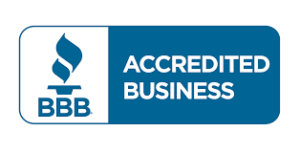
BBB Accredited – Demonstrates ethical business practices, commitment to customer satisfaction, and a trusted reputation within the community.
Psychology Today Verified – Indicates that Tennessee Detox Center is listed on Psychology Today, a trusted directory for verified mental health providers and treatment centers.
HIPAA Compliant – Ensures all patient health information (PHI) is protected and managed in accordance with strict federal privacy and data security standards.
ASAM Member – Tennessee Detox Center is a proud member of the American Society of Addiction Medicine (ASAM), reflecting a commitment to science-driven and evidence-based treatment standards.

Rutherford County Chamber of Commerce – Membership signifies active participation in the local community and support for regional growth and civic collaboration.
Yes, Your Insurance Covers Detox and Rehab Treatment
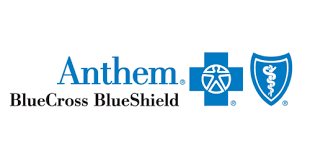
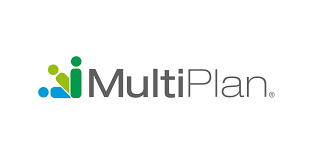
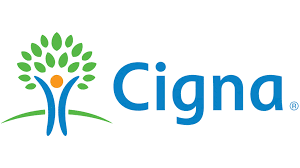
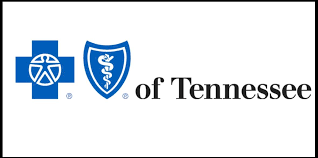

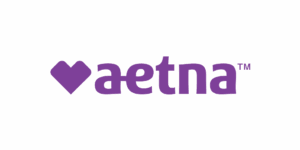
Your insurance may pay for all of your addiction treatment. Call for a confidential conversation with a treatment provider about your financial options.
What Our Patients Say: Stories of Hope and Recovery










Thank you all so much!




















The facility itself is clean, well-maintained, and equipped with all the necessary amenities to provide a serene and supportive environment.
What truly stands out is the personalized approach to care. The team developed a treatment plan tailored to my specific needs, incorporating both medical and holistic therapies. This comprehensive approach not only addressed my physical withdrawal symptoms but also supported my mental and emotional well-being.
The counselors and therapists offer a range of therapies that helped me understand the root causes of my addiction and develop effective coping strategies. Group therapy sessions provided a safe space to share experiences and gain insights from others on similar journeys.
Overall, my experience with this medical detox program was life-changing. The compassionate and skilled staff, combined with the personalized treatment approach, provided me with the foundation I needed for a successful recovery. I highly recommend this facility to anyone seeking a safe and supportive environment for detox and recovery.
But it's the people who make this place truly special. The staff, they've been there, they understand the struggle. No judgment, just support, encouragement, and a genuine desire to help you heal. They treated me like an old friend, even though I was just visiting for my buddy.
They've got a whole range of therapies to help you on your journey – individual counseling, group sessions, and even a fitness center to get you moving again. It's not just about detox. It's about rebuilding your life from the ground up.
My friend, the owner, he's living proof that this place works. He poured his heart into creating a haven for those seeking recovery, and his passion shines through in every detail.
So, if you're ready to take that first step, this is the place. Trust me, they'll walk beside you every step of the way.
Get Family Support Now
Supporting Families Through Recovery
We understand addiction affects the whole family. Our comprehensive family program helps rebuild trust and restore relationships.
Weekly Family Therapy Sessions
Educational Workshops
Support Groups
Communication Skills Training
Educational and resource content provided on Tennessee Detox Center pages is intended to support understanding of addiction and recovery. This content is not a substitute for professional medical care.
Third-party references are informational only and do not imply endorsement.
In medical emergencies, call 911 immediately.
Treatment decisions should always involve licensed professionals. Insurance coverage must be verified directly.
Use of this website does not establish a provider-patient relationship.
Addiction Group. (n.d.). Tennessee drug and alcohol statistics. Retrieved July 28, 2025, from https://www.addictiongroup.org/tennessee/drug-statistics/
Substance Abuse and Mental Health Services Administration (SAMHSA). (2023). 2023 ICCPUD state report: Underage drinking prevention – Tennessee. U.S. Department of Health and Human Services. Retrieved from https://library.samhsa.gov/sites/default/files/tennessee-iccpud-state-report-2023.pdf
Tennessee Alcoholic Beverage Commission. (2024). Report to prevent underage drinking, drunk driving, and other harmful uses of alcohol (PC 961). State of Tennessee. Retrieved from https://www.tn.gov/content/dam/tn/abc-documents/abc-documents/PC-961-2024-Report-to-Prevent-Underage-Drinking-Drunk-driving-and-Other-Harmful-Uses-of-Alcohol.pdf
National Institute on Alcohol Abuse and Alcoholism (NIAAA). (2012). Alcohol withdrawal syndrome. In S. C. Merrill & B. S. Frances (Eds.), The management of alcohol use disorders: A practical guide for clinicians (NIH Publication No. 12–5191). National Center for Biotechnology Information. Retrieved from https://www.ncbi.nlm.nih.gov/books/NBK64119/

Medically Reviewed By:
Dr. Vahid Osman, M.D.
Board-Certified Psychiatrist and Addictionologist
Dr. Vahid Osman is a Board-Certified Psychiatrist and Addictionologist who has extensive experience in skillfully treating patients with mental illness, chemical dependency and developmental disorders. Dr. Osman has trained in Psychiatry in France and in Austin, Texas. Read more.

Clinically Reviewed By:
Josh Sprung, L.C.S.W.
Board Certified Clinical Social Worker
Joshua Sprung serves as a Clinical Reviewer at Tennessee Detox Center, bringing a wealth of expertise to ensure exceptional patient care. Read More
The Joint Commission – The Gold Seal of Approval® signifies that Tennessee Detox Center meets or exceeds rigorous performance standards in patient care, safety, and quality. It reflects a commitment to continuous improvement and clinical excellence.

LegitScript Certified – Confirms that Tennessee Detox Center operates in full compliance with laws and regulations, and meets high standards for transparency and accountability in addiction treatment marketing.

BBB Accredited – Demonstrates ethical business practices, commitment to customer satisfaction, and a trusted reputation within the community.
Psychology Today Verified – Indicates that Tennessee Detox Center is listed on Psychology Today, a trusted directory for verified mental health providers and treatment centers.
HIPAA Compliant – Ensures all patient health information (PHI) is protected and managed in accordance with strict federal privacy and data security standards.
ASAM Member – Tennessee Detox Center is a proud member of the American Society of Addiction Medicine (ASAM), reflecting a commitment to science-driven and evidence-based treatment standards.

Rutherford County Chamber of Commerce – Membership signifies active participation in the local community and support for regional growth and civic collaboration.
Holistic Detox Services
Compassionate Rehab Services
Evidence-Based Treatment
Yes, Your Insurance Covers Detox and Rehab Treatment






Your insurance may pay for all of your addiction treatment. Call for a confidential conversation with a treatment provider about your financial options.
Insurances We Accept
Get Family Support Now
Supporting Families Through Recovery
We understand addiction affects the whole family. Our comprehensive family program helps rebuild trust and restore relationships.
Weekly Family Therapy Sessions
Educational Workshops
Support Groups
Communication Skills Training
What Our Patients Say: Stories of Hope and Recovery










Thank you all so much!




















The facility itself is clean, well-maintained, and equipped with all the necessary amenities to provide a serene and supportive environment.
What truly stands out is the personalized approach to care. The team developed a treatment plan tailored to my specific needs, incorporating both medical and holistic therapies. This comprehensive approach not only addressed my physical withdrawal symptoms but also supported my mental and emotional well-being.
The counselors and therapists offer a range of therapies that helped me understand the root causes of my addiction and develop effective coping strategies. Group therapy sessions provided a safe space to share experiences and gain insights from others on similar journeys.
Overall, my experience with this medical detox program was life-changing. The compassionate and skilled staff, combined with the personalized treatment approach, provided me with the foundation I needed for a successful recovery. I highly recommend this facility to anyone seeking a safe and supportive environment for detox and recovery.
But it's the people who make this place truly special. The staff, they've been there, they understand the struggle. No judgment, just support, encouragement, and a genuine desire to help you heal. They treated me like an old friend, even though I was just visiting for my buddy.
They've got a whole range of therapies to help you on your journey – individual counseling, group sessions, and even a fitness center to get you moving again. It's not just about detox. It's about rebuilding your life from the ground up.
My friend, the owner, he's living proof that this place works. He poured his heart into creating a haven for those seeking recovery, and his passion shines through in every detail.
So, if you're ready to take that first step, this is the place. Trust me, they'll walk beside you every step of the way.


